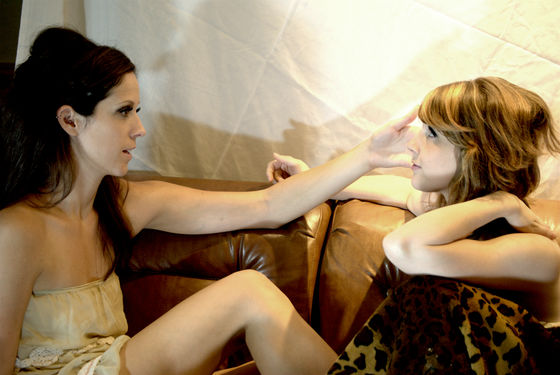What is the difference between "not trusting" and "not trusting" for the first meeting?
Normally we will evaluate such as "This person can be trusted", "This person can not be trusted" based on the behavior of the person you contact and the compatibility / character with yourself. However, when first met, everyone is the first person to meet and, of course, it seems that there is nothing to judge the opponent in the first meeting without knowing the person's personality and hobby. In order to clarify the question "What is the material when a person judges a person who is first to meet for" reliable "or" unreliable "?" Results of investigation through "game that hands money to the opponent for the first time" The known content is stated in LIVESCIENCE.
This Is Why You Trust Some Strangers and Not Others
https://www.livescience.com/61555-trust-resemblance-pavlovian-response.html
Stimulus generalization as a mechanism for learning to trust | Proceedings of the National Academy of Sciences
http://www.pnas.org/content/early/2018/01/26/1715227115
For example, suppose you suddenly want to go to the toilet while you are working with a laptop open in the coffee shop. You do not want someone to steal your precious notebook PC, you decided to ask other guests sitting next to me saying "I'm sorry, are you looking at this package for a while?" At this time I was sitting beside you, a big actress who won the Emmy Award seven timesBetty White"Granted" grandmother and his famous gangsterAl CaponeA grandfather "similar" to him. Which would you like to watch for your luggage? At this time, there should be no clue between them as to which can be more reliable. Both of us are new friends who have never seen or engaged in ourselves, because their character and ordinary behavior are completely unknown. However, it is a nod to say that there are more people who choose Betty White's grandmother.
In order to prove the hypothesis that Brownian University and New York University's joint research team says, "The criteria for judging whether a person who first to meet can be trusted or not can be found in the person's" face "? I trusted the opponent for the first time and gave me money "to conduct experiments. In this experiment, we divided into one subject and a group of three players who were completely in contact with the subjects first, and the subjects were given 10 dollars (about 1100 yen) first. The subject chooses whether to trust the opponent in full by investing in the opponent or leaving it at hand without investment. When invested in a player, the investment of 10 dollars has increased to 40 dollars (about 4,400 yen), which is quadruple at the hand of the player, and the invested player gives the subject half a dollar 20 and divides the dollar 40 dollars Or do you choose to get $ 40 full amount without handling as much as 1 dollar to subjects. If the player gets a mountain, the subject can get 20 dollars and if you do not divide it will cost you $ 10.

byjenniamigo
Actually, in this game, only the subject is a real human being. The player shown on the liquid crystal panel is an icon of only the face picture, three people are "very reliable" player A which divides funds with a 93% probability each, and 60% of the funds are bundled with a probability of 60% "A fair trust It is programmed to automatically select actions with a certain probability in the player B which can "be able to do" player B, and "unreliable" player C which divides funds with a probability of 7%. Subjects repeat this game, learning that "Player A can trust, Player B can trust the next, Player C can not trust."
Next, three players displayed on the liquid crystal screen will be replaced while the subject remains. Three new players are also icons with only face photos, and although they are completely "first-to-face" with the subjects, in fact the face photographs of the three new players slightly deform the faces of the three players who appeared before Things. New players D "similar" to trustworthy player A "" New player E similar to "Trustworthy player B" "New players F similar to" Unreliable player C " I will. If we do the experiment again under this condition, even though the subject understands that the opponent player is a different person from the former player and it is totally the first meeting with you, the ratio of investing money in the opponent is It is said that player D> player E> player F in order.

Based on the above experimental results, the criteria for judging whether one can trust the first-time opponent can be said to be "similar" to the trusted opponent he / she contacted in the past or " "It is found that it uses the point that". What a human being, even if you are the first person to meet you, we are bringing out events that are completely unrelated to what we have experienced as criteria for evaluation. The result showed that the opponent player appeared more prominently as it was similar to the player judged to be "untrusted player", and it was found that the person tends to rely on experience rules as much as watching unreliable person I will.
No matter whether the first meeting grandmother resembles Betty White it is not a material to really judge whether that grandmother is a reliable person. Likewise, the likelihood that Al-Capone's grandfather is actually a very good person is not reduced, just because the face resembles a gangster. Even though we are the first person we meet, we need to judge over time to see whether the person in front of you is trustworthy, really aware of your bias being applied It seems.

byDefense Images
Related Posts:
in Science, Posted by log1h_ik








